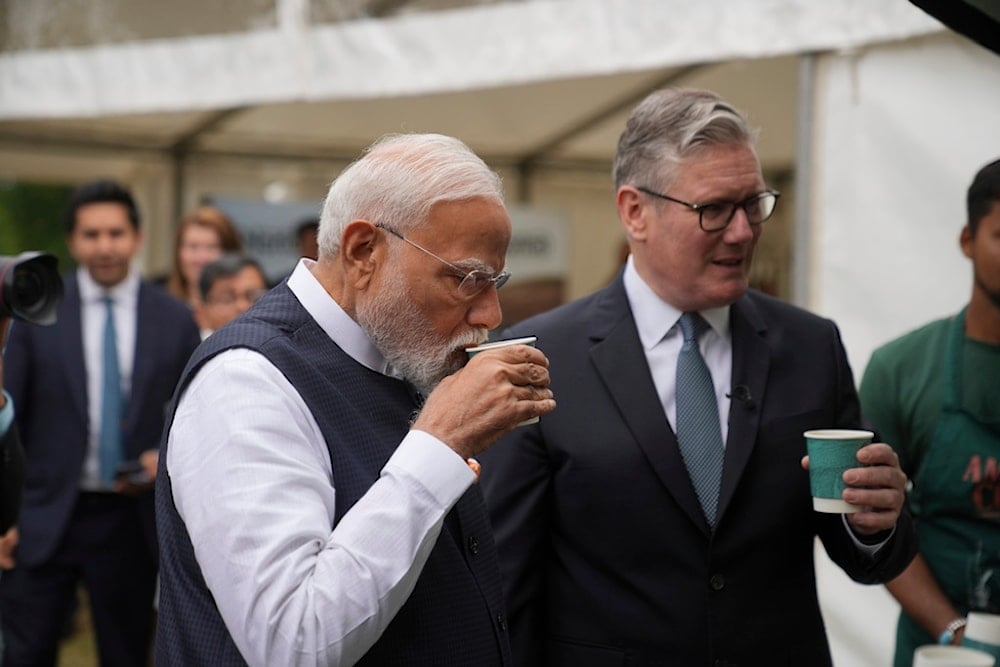Modi warns Pakistan of BrahMos missile response to future attacks
Indian Premier Narendra Modi warns that future terror attacks from Pakistan would trigger BrahMos missile strikes.
-

Britain's Prime Minister Keir Starmer and Prime Minister Narendra Modi of India, have a cup of tea during a business showcase event at Chequers near Aylesbury, England, Thursday, July 24, 2025 (AP)
Indian Prime Minister Narendra Modi issued a stern warning on Saturday, declaring that any future terrorist attack on India originating from Pakistan would be met with decisive retaliation, including the use of BrahMos cruise missiles.
Speaking in the city of Varanasi, Modi emphasized that the joint Russian-Indian BrahMos missile project is now actively producing weapons in Lucknow, Uttar Pradesh. "If Pakistan makes the mistake again, the missiles manufactured in Uttar Pradesh will destroy the terrorists," he said.
Modi claimed that even the mere mention of “BrahMos” causes fear in Pakistan, saying: “Just hearing the name BrahMos keeps them up at night. These missiles will strike terrorists in any future attack.”
The Indian Prime Minister added that the international community had already witnessed the effectiveness of India's defense systems during "Operation Sindhur," highlighting the country’s growing self-reliance in air defense, missile systems, and drones.
His comments come amid heightened tensions between India and Pakistan following the April 22, 2025, attack in the Jammu and Kashmir region under Indian control, which left 26 people dead. The incident triggered days of clashes before a US-brokered ceasefire was reached.
What is the BrahMos missile?
The BrahMos is a supersonic cruise missile developed jointly by India and Russia. Capable of reaching speeds up to Mach 3, it is one of the fastest missiles in its class. Known for its versatility, precision, and strategic deterrence capability, the missile has become a central component of India’s defense posture.
The escalation was halted by a Trump-brokered ceasefire, which remains intact. The Pakistani official said the original drawdown was scheduled to be completed within 10 days, but “minor issues caused delays.”
Last week, the Indian Army acknowledged in a statement that both nations had agreed to “immediate measures to ensure troop reduction from the borders and forward areas.” This coordinated step aims to prevent further escalation amid fragile peace efforts.
The region of Kashmir, claimed in full by both India and Pakistan but administered in parts by each, remains the flashpoint of their historic rivalry. Since the partition and independence from British rule in 1947, the two countries have fought multiple wars, most of them centered on Kashmir.
The latest de-escalation reflects cautious optimism but leaves underlying tensions unresolved. Regional analysts warn that without a long-term political settlement, the military standoff could reignite at any moment.

 3 Min Read
3 Min Read










